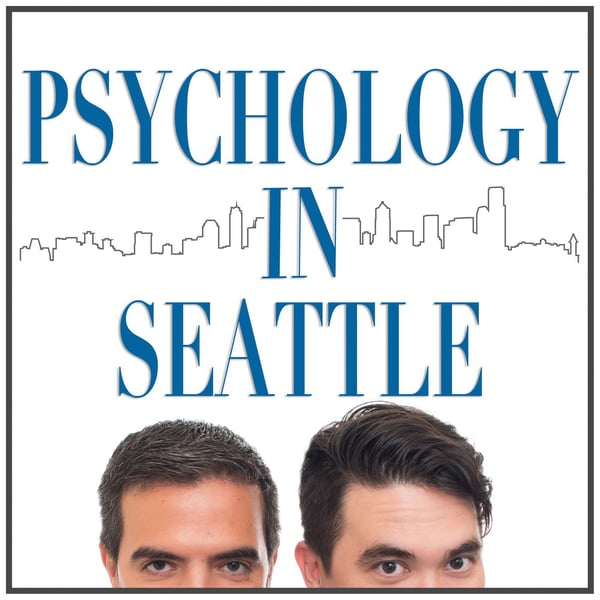Schema Therapy with Bob (Chapter 2)
Psychology In Seattle Podcast
Kirk Honda
4.6 • 1.2K Ratings
🗓️ 16 October 2019
⏱️ 4 minutes
🧾️ Download transcript
Summary
Become a patron of our podcast by going to https://www.patreon.com/PsychologyInSeattle
Email: https://psychologyinseattle.squarespace.com/contact
The Psychology In Seattle Podcast.
October 16, 2019.
Access archive at: https://psychologyinseattle.squarespace.com
Music by Bread Knife Incident.
This content is for educational and informational purposes only. Although Kirk Honda is a licensed marriage and family therapist, this content is not a replacement for proper mental health treatment. Always seek the advice of your mental health provider regarding any questions or concerns you have about your mental health needs.
This show is part of the Spreaker Prime Network, if you are interested in advertising on this podcast, contact us at https://www.spreaker.com/show/3269717/advertisement
Transcript
Click on a timestamp to play from that location
| 0:00.0 | Psychology in Seattle. |
| 0:07.0 | Hey deserving listeners, today we have Bob back on the podcast to talk about his schemas so this is going to be part two in which I |
| 0:16.4 | interview Bob about his schemas and his emotional needs and where he grew up and the schemas he developed and the maladaptive |
| 0:29.2 | coping styles that he engages in that we all engage in in relation to our schemas and what he's done in therapy and his own personal work to overcome that to not fall into certain holes, certain pitfalls, certain situations that are self-destructive and deny Bob the ability to get his needs met, which we all need. |
| 1:00.0 | And for those of you who maybe don't know this, but I've been doing a series of episodes on |
| 1:06.8 | schema therapy. I did a lot of people have been asking me to do a deep dive on schema therapy. I did that. I didn't really know the model that well, |
| 1:15.3 | but after doing the deep dive I discovered that I really liked it and for a lot of reasons. |
| 1:21.1 | One of which is that it solidifies, so to speak, the way I've been thinking about people for the last |
| 1:29.7 | you know, 15 years into a understandable model that has a language and a system that is kind of provides a formula, I guess, |
| 1:44.7 | for solidifying the thoughts about why people are |
| 1:47.8 | the way they are and why we all have |
| 1:50.2 | certain repetitive foibles and repetitive sensitivities. |
| 1:53.6 | Sort of an accurate description of how people are with the basis in attachment. |
| 1:59.4 | Right. |
| 2:01.4 | And instead of it just being general attachment theory. Right. And instead of it just being general attachment theory, it actually tries to describe these different kinds of conditions. |
| 2:11.0 | It also moves away from the regular personality disorder model, which is fine, but it's kind of limited in its way as well. |
| 2:22.0 | And so I find it to be very helpful and part of my effort to further my |
| 2:28.3 | understanding is to interview people about their schemas to get the stories of what it feels like, what it actually is, |
| 2:37.2 | what the lived experiences of having one of the 18 schemas that are proposed by schema therapy. |
| 2:45.6 | So let's get into a Bob. |
| 2:48.3 | Yeah, let's get into it. |
| 2:49.5 | This is the Psychology and Seattle podcast. |
... |
Please login to see the full transcript.
Disclaimer: The podcast and artwork embedded on this page are from Kirk Honda, and are the property of its owner and not affiliated with or endorsed by Tapesearch.
Generated transcripts are the property of Kirk Honda and are distributed freely under the Fair Use doctrine. Transcripts generated by Tapesearch are not guaranteed to be accurate.
Copyright © Tapesearch 2025.

